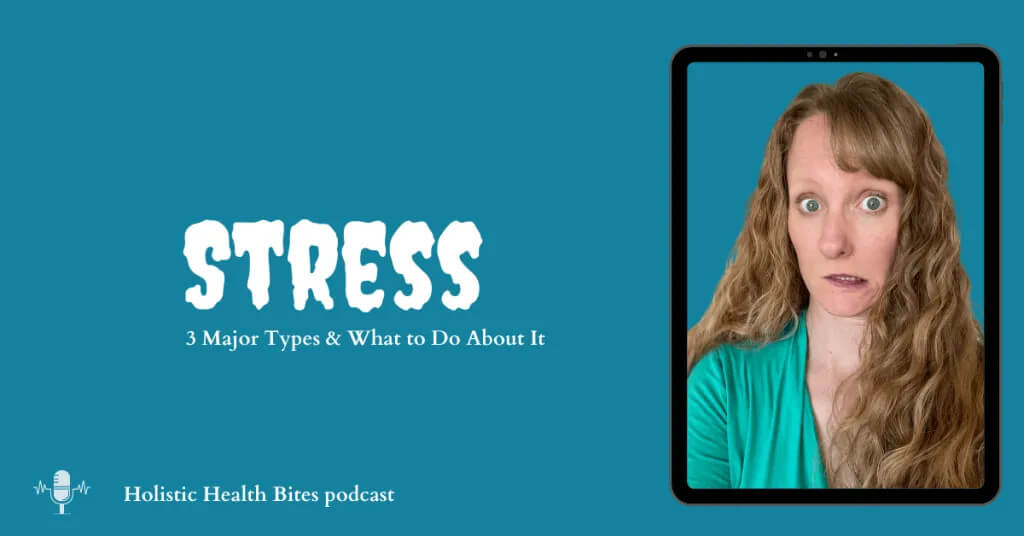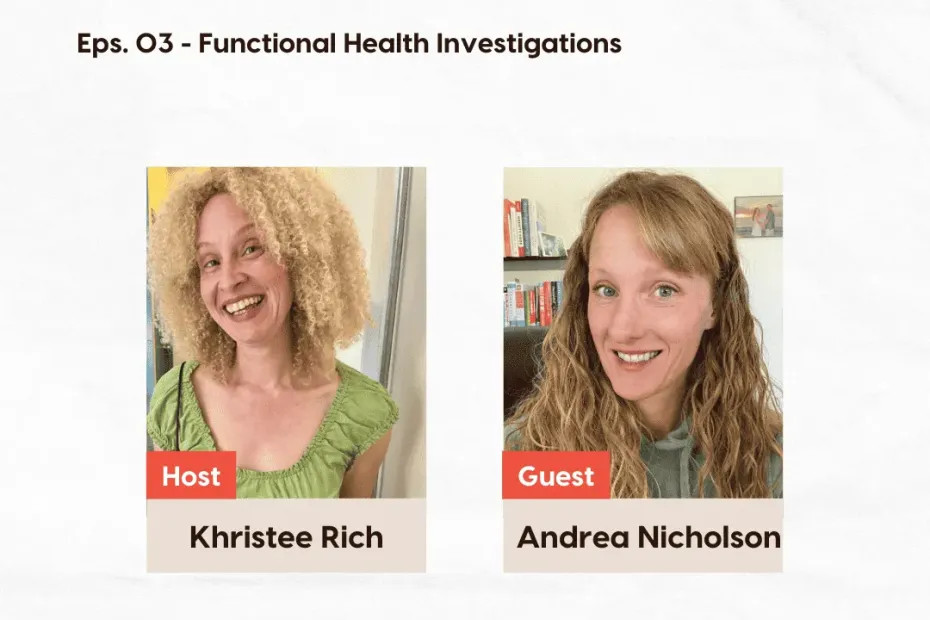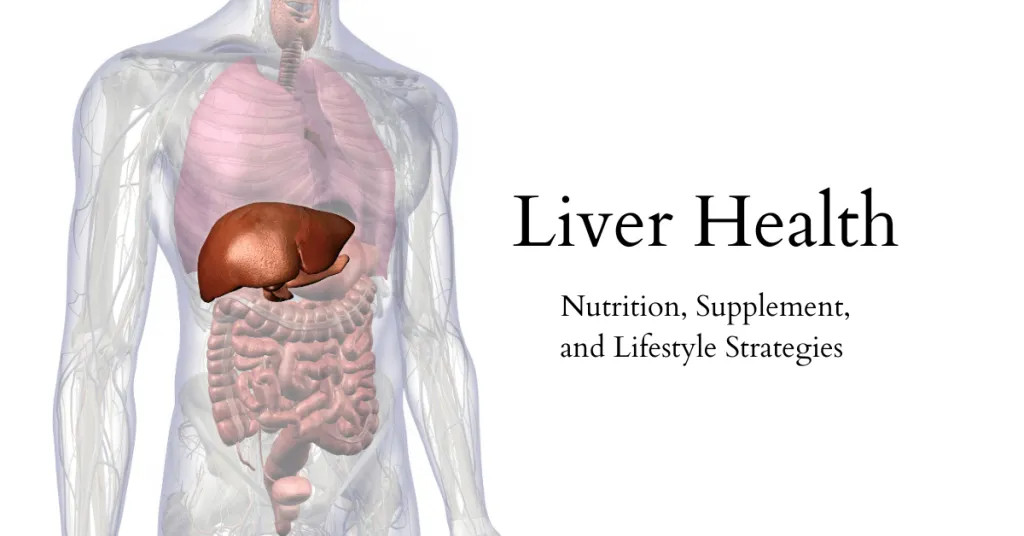
3 Major Types of Stress
Stress is a normal part of life and it’s not all bad. We are all going to experience it in one form or another pretty much every day. However, not all stress is created equal, and as you start to understand the different types you can manage it more effectively.
Emotional Stress
Let’s start with emotional stress. This type of stress is the one most of us are familiar with – it’s the stress we feel when we’re overwhelmed, anxious, upset, or worried about something. Emotional stress can be caused by anything from a difficult work situation to relationship problems, financial worries, death or illness of a loved one, health scares of our own, and anything that we worry about. This type of stress can be hard to escape or eliminate because these are things that happen in all of our lives pretty regularly. Emotional stress can have a significant impact on our mental and physical health over time if we don’t have built up resiliency to it.
Physical Stress
Physical stress is the type of stress that results from physical exertion, injury or physical trauma. This can include everything from rolling your ankle, to getting in a car accident (which will also likely cause emotional stress), and even just sitting in one position for too long. This can also include OVERexercising and under-exercising (or being too sedentary). In small doses, physical stress, especially from exercise, can be a great thing – making our muscles and bones come back stronger. In large doses or from less desired circumstances, physical stress can be harmful and detrimental to overall wellness. Physical stress can show up as muscle tension, fatigue, swelling, redness, weakness, and even pain.
Chemical Stress
Lastly, we have chemical stress. This type of stress is often overlooked or unknown, but it’s just as important as the other two. Chemical stress is the stress that comes from toxins, pollutants, infections, illnesses and other harmful substances. This includes things like cigarette smoke, air pollution, but it can also come from toxins in your water that you’re exposed to when you drink it, cook with it, shower in it, or clean with it. This can also come from personal and home care products – cosmetics, cleaning products, shampoo, conditioner, lotion, laundry detergent, dryer sheets, air fresheners, candles, cookware, food packaging, medications, supplements, artificial ingredients, and lawn care products. This category also includes underlying infections and illnesses – whether you know about them or not! If you have opportunistic bacteria or yeast overgrowing in your gut, or you have a latent infection from something like Epstein-Barr virus or Lyme disease. This can also include other illnesses like diabetes, cancer, autoimmune conditions, and hypertension. All of these cause changes in chemical reactions in the body that contribute to symptoms we see and feel.
Why Does it Matter?
So why is it important to understand the different types of stress? Because different types of stress require different strategies for managing them. For emotional stress, for example, practices like meditation, breathing, yoga, or talking to a trusted friend can be helpful. For physical stress, taking breaks throughout the day and doing stretches or exercises can help alleviate tension. For injuries, we know that rest, ice, compression and elevation can help. If you’re currently sedentary, start moving every day. If you’re currently over-training, slow it down and add some restorative practices in. When it comes to chemical stress, avoiding exposure to harmful substances, focus on healing the gut so you can reduce the likelihood of infections, eat a quality diet, swap out personal and home care products for less toxic versions, and take care of your overall environment.
Stress is a normal part of life, but the benefits are limited to short term stress only. When it becomes a persistent situation every day, it causes miscommunications between the brain and the body. Let’s talk briefly about the stress response in the body…
Stress Response
When stress is perceived, this sends a signal to the brain that the situation needs to be dealt with. Specifically the hypothalamus portion of the brain receives this signal. The hypothalamus then signals the pituitary gland (also in the brain) to send a signal to the adrenal glands to prepare the body to deal with the stressor. The adrenal glands then push out cortisol.
You likely have heard of cortisol as our “stress hormone” and that it has an impact on belly fat. Cortisol actually has hundreds of roles throughout the body having an impact on blood sugar, digestion, immune system, mood, thyroid function, inflammation and more. In this stress state, cortisol and adrenaline are pumped out to help us either fight or flee from the stressor. This is the classic fight or flight scenario.
Along with this response, your blood sugar is elevated to give you energy to fight or flee, your digestion is slowed because it’s a non-essential activity when facing a life or death situation, your heart rate and blood pressure increase to help you have adequate circulation during the fight or flight. This all makes perfect sense from a survival standpoint. Once you’ve mitigated the proverbial tiger, all of these systems return to normal.
Chronic Stress
The problem comes in when stress is chronic. It’s ongoing. This cycle of increased cortisol, adrenaline, blood sugar, heart rate, blood pressure, and decreased digestion continue perpetually over and over again. But you aren’t really running from or fighting off an attacker in this case. You’re sitting in worry, fear, doubt, illness, injury, or toxins. You’re stewing in the stress. You don’t really need a faster heart rate, more sugar in your blood, higher blood pressure, or any of these chemical reactions to deal with the situation. But your body doesn’t know the difference between these types of stressors.
Over time, this leads to burnout. The brain stops listening to the body. The body stops listening to the brain. And this leads to a whole host of imbalances in the body – from increased body fat, to depression, anxiety, hormone imbalances, insulin resistance, digestive problems, nutrient deficiencies, chronic pain, and so much more. When the body is out of rhythm, any system can go awry.
Remedies to Chronic Stress
The first step in mitigating this is to investigate what your body is doing right now. Oftentimes in the early stages of chronic stress, you’ll have elevated cortisol levels and dysregulation of other hormones and immune system responses. The longer the situation continues, you’ll likely transition to low cortisol levels with even further hormone imbalances and a depleted immune system. The remedy for your situation needs to correlate with what your body is doing. We would approach high levels very differently than we would low levels or for someone who is swinging from high to low throughout the day. We need solid data to pair up with symptoms to make proper personalized recommendations to diet, lifestyle, stress management, and any healing agents.
Investigate Your Health Challenges
To learn more about how this investigation might help your health challenge, schedule a free call with me and let’s discuss the health challenge you’re dealing with.





















0 Comments